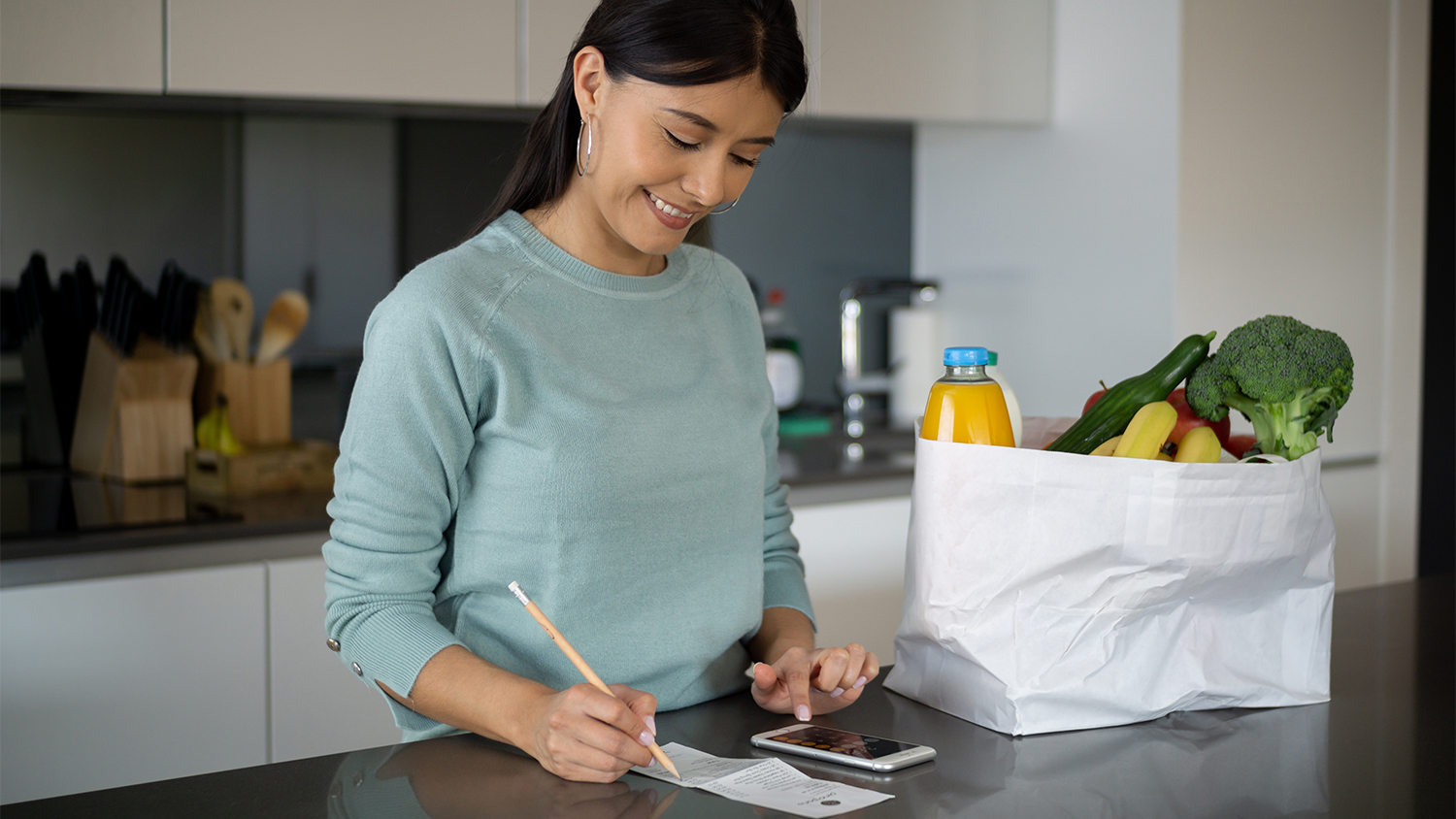
Discover the average professional organizer cost, what influences pricing, and how to budget for your next home organization project.
Use these tips to avoid having a fridge filled with expiring food


There's nothing like the feeling of landing a huge packet of pork chops for a fraction of the cost. But then, you start to wonder, When am I going to eat all these? Follow these tips to ensure you make the right choices when bulk-buying so you don’t end up wasting money or food.

It’s important to stick to your budget, even when buying in bulk. While it may be tempting to think the more you buy, the more you multiply your savings, you’ll eventually reach a point of diminishing returns—or even losses. That’s because people are often over-optimistic about how much of an item they can consume.
Bulk-buying may save money in per-unit terms, but it's expensive up front. It can be easy to spend too much money on bulk items and not have enough left over for regular groceries. Carefully monitor your budget and set a limit for how much you’ll spend on each bulk-buying trip.
Making a meal plan can help you avoid certain on-sale items that don't fit into your carefully crafted food calendar. It can also help you zero in on specific food items to see if there are bulk discounts rather than wasting time shopping around.
Generally, it's a good idea to plan your meals each week. It helps you eat healthier and save money rather than panic-ordering takeout when you get home from work when you remember you have nothing ready for dinner.

Combining coupons with bulk-buying is a great way to maximize your savings. It’s also a sign you've done the proper planning to limit waste rather than impulse-buying something that's on sale. Have your coupon ready, and wait until there's a sale to pull it out.
It's no good to buy in bulk if you don't have storage for bulk goods since there's only so much space in the fridge. This is less of a problem for nonperishables, but it's a good idea to find a room in your home to keep your bulk goods so people aren't tripping over them on the kitchen or pantry floor.
Look into some stylish storage solutions for your bulk items. You might even consider installing some home storage solutions for additional space-saving benefits.

If you buy food or items in bulk, it should be something you regularly use. Don't talk yourself into thinking you'll change up your entire meal routine to accommodate that 50-pound bag of beans you bought. If you're not a regular bean eater, it’ll probably sit in the pantry and gather dust (or worse, mice).
Just because you're buying a lot of one item doesn't mean it'll save you money compared to purchasing an individual unit. Sometimes, a massive pack of steaks will cost you a lot more than buying a few individual ones at the supermarket, particularly if they're different cuts.
Are you really saving that much money by buying in bulk? Maybe, maybe not. The best way to determine if you are is to check the price per unit. For example, those paper towel rolls may all look the same size, but some have different sheet counts. Many grocery stores include the price per square foot or some similar measurement in smaller print on the price tag, but it’s relatively straightforward to calculate the savings yourself.

Unless you're planning a huge cookout, don't bulk-buy perishables. They'll take up a considerable amount of space in your refrigerator, and you're almost guaranteed to throw out a lot of the food when the sell-by date arrives.
Instead, the best way to take advantage of the savings is to stock up on items you use all the time. For example, toilet paper is one of the best things to bulk-buy because you use it every day, and it can sit in your closet for a long time.
Sometimes, local stores will have bulk food sales and promotions you can take advantage of. For example, National Bulk Foods Week is in mid-October, and many stores use the opportunity to offer special deals to their customers. Ask your local store what kind of sales events are coming up.

That huge package of pork chops will probably go to waste if you buy it, even though the price per unit is spectacular. But what if you have some friends or family who live nearby to split them? This could make bulk-buying work for you—and justify buying perishables in bulk.
Of course, you'll have to plan out the logistics and possibly go shopping together. For example, you wouldn't want to get a giant jar of mayonnaise and have to split it by scooping it into separate Tupperware. Instead, decide on some standard perishables you might all need and split those accordingly.
It's easy to lose track of what's in the pantry. Keep a detailed inventory of what you have and review it before heading to the store. Also, learn how to organize your pantry, which ensures you don't accidentally buy another bag of white rice.
Rather than bulk-buying on a whim, choose a specific day of the week for your bulk-shopping. For example, if you plan your meals on Saturdays, take a trip to the store on Sundays to look for deals. That way, you'll be better prepared and give yourself the best chance to score a sale that’ll actually save you money.
From average costs to expert advice, get all the answers you need to get your job done.

Discover the average professional organizer cost, what influences pricing, and how to budget for your next home organization project.

Declutter and maximize your space with these eight smart storage tips for messy closets, cupboards, and drawers around your home.

When was the last time you cleaned out your spice rack or linen closet? Our list of 12 things to get rid of in just one hour helps you toss what is old, expired, or no longer needed. Decluttering is faster and easier than you might think.

If your home is a bit messy, that’s perfectly normal. Trusting a professional home organizer to revamp your space can be worth the cost. Here’s how to find and hire a professional organizer.

Maximize space and reduce clutter with these smart laundry room organization tips that boost function and even your home’s resale appeal.

These kitchen drawer organization tips will reduce time spent rifling through the kitchen looking for what you need. Learn how to organize your kitchen.